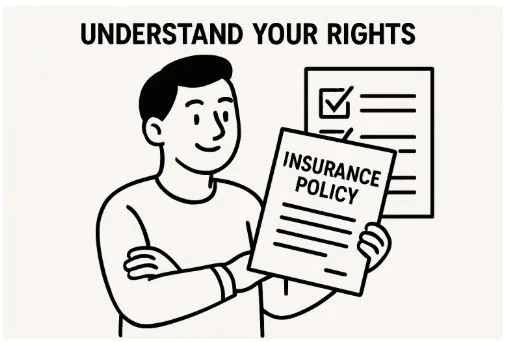Your Rights When Dealing With Insurance Companies
Key Takeaways
- Understanding your policy is essential for protecting your interests during claims.
- You can claim notifications, select repair shops, and ensure fair settlement offers.
- Documenting every interaction and seeking expert help can significantly impact complicated insurance cases.
Table of Contents
- Understanding Your Policy
- Prompt Notification of Claims
- Right to Choose Repair Services
- Protection Against Unfair Practices
- Right to Fair Settlement Offers
- Access to Legal Recourse
- Maintaining Detailed Records
- Seeking Professional Assistance
- Conclusion
Understanding Your Policy
When navigating the insurance landscape, it’s vital to start by understanding your policy’s fine print. Your policy outlines what is covered and any exclusions, limitations, and procedures for filing claims. Knowing these elements beforehand ensures you won’t be caught off guard and will empower you to advocate for your best interests. If you have questions about your coverage or need personalized advice, consulting local experts like Rochester NY insurance agencies can be invaluable for peace of mind and guidance tailored to your needs.
All policies contain specific obligations for both you and the insurer. Ensure you can easily reference key numbers, deadlines, and supporting documentation requirements for filing a claim. This preparation helps expedite the process and minimizes the risk of disputes arising from simple misunderstandings.
Prompt Notification of Claims
After experiencing an accident, theft, or damage, one of your first responsibilities is to inform your insurance company promptly. Failure to do so could make your claim invalid, regardless of your policy’s coverage. When you report, stick to the facts and avoid speculating or admitting fault—final determinations will come after a full investigation. This protects your rights while ensuring your insurer processes the claim based on accurate, timely information. Familiarize yourself with your policy’s deadlines, as prompt notification is typically a non-negotiable term.
Right to Choose Repair Services
Consumers often don’t realize they have the legal right to select repair shops, especially after auto accidents. While an insurer may suggest preferred vendors, you are rarely obligated to use them except in particular policy types. For instance, the North Carolina Insurance Commissioner has cautioned against insurance companies steering customers away from their chosen repair shops. If you experience such pressure or intimidation, you have every right to file a complaint with your respective state’s insurance department.
Protection Against Unfair Practices
Insurance companies are mandated to act in good faith, which means they must thoroughly investigate your claim, communicate clearly, and refrain from needless delays or arbitrary denials. Practices such as stalling for no reason, offering unreasonably low settlements, or neglecting proper investigation can be categorized as “bad faith.” Policyholders affected by such behavior may have legal avenues to seek compensation. For a deeper understanding of insurance bad faith, see this comprehensive overview from Wikipedia.
Right to Fair Settlement Offers
Receiving a settlement offer is just one part of the process—you retain the right to negotiate if the amount is unsatisfactory. Insurers must offer a settlement that reflects your loss based on policy terms. If the offer seems inadequate, you can reject it and request further review or additional documentation. This guide from CBS News provides valuable tips for negotiating or challenging unfair settlements, especially for homeowner insurance claims.
Access to Legal Recourse
In cases of unresolved disputes, policyholders are entitled to seek legal support. Recently, states like New Jersey have strengthened consumer protections, giving you more leverage in bringing suit against unfair insurance practices. If your claim has been denied or delayed unreasonably, consulting a local attorney familiar with insurance law can be the first step toward securing justice. Read more about evolving laws and your legal options in this article from PropertyCasualty360.
Maintaining Detailed Records
The importance of meticulous documentation cannot be overstated. Keep copies of every communication—emails, letters, claim forms, and notes from phone calls—including who you spoke with, dates, and details covered. This documentation will serve as critical evidence if your interactions become contentious, and can protect you should your claim be unfairly delayed or denied. According to Consumer Reports, organized records often tip the balance in favor of the policyholder during disputes.
Seeking Professional Assistance
If you are overwhelmed by the claims process or believe your insurer isn’t acting reasonably, don’t hesitate to seek help. Public adjusters, lawyers specializing in insurance law, and local insurance professionals can advocate for your rights and review settlement offers for fairness. These experts can help you navigate negotiations or legal actions, improving your chances of a satisfactory outcome.
Conclusion
Being proactive and informed is your greatest asset when dealing with insurance companies. Understand your policy, document all interactions, recognize your right to fair treatment, and don’t hesitate to seek legal or professional help if necessary. By asserting your rights and staying organized, you can ensure your claims are handled thoroughly and justly every step of the way.




